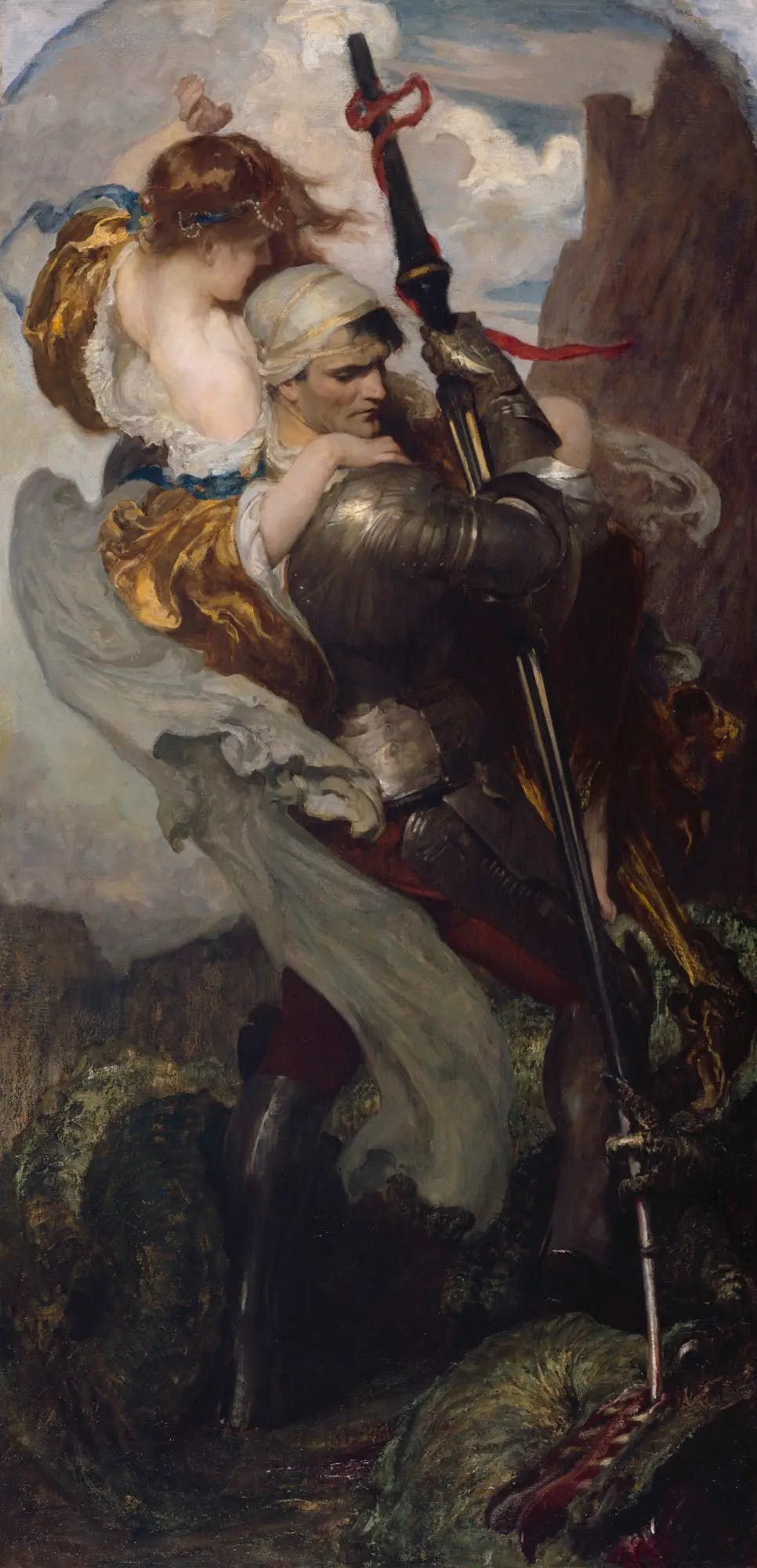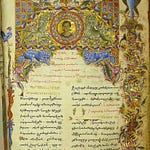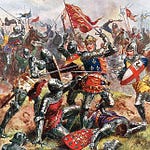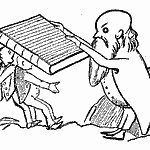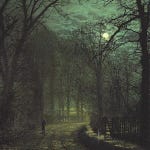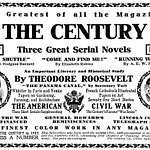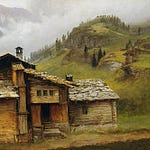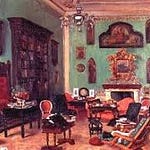In my chat on our Word of the Week, I mentioned that the name George comes from the Greek georgos, meaning a worker of the earth — that is, a farmer. I also said that Saint George, hugely popular everywhere in the Christian world, was adopted as the patron saint of merry old England. That’s why the poet Spenser has his hero, the Knight of the Red Cross, be the future Saint George. He’s going to slay a dragon and free the princess’s realm from that fire-breathing monster, and he’ll marry the princess and there will be a lot of merrymaking — but he sure has to go through one trial after another, this Red Cross Knight, and he doesn’t always get things right, either. But that’s a matter for another day.
Now, what do you think of, when I say the word “England”? Not “Great Britain,” which is a political thing, or “The British Empire,” but just “England”? English breakfasts, maybe; fish and chips; the pleasing hills and valleys of the Midlands; the white-chalk cliffs of Dover; English dons walking along ivy-shaded alleys, talking about Greek poetry; the rollicking mirth of a comedy by Shakespeare; English housewives going to market for the greens for the week; tea and scones; the bells of Saint Clement’s; good, bluff, hearty, Englishness. I’m an American and my forebears came from Italy, but I feel the English in my bones, because it’s the language I first spoke, and the fables I first loved, and the poems I first read; and that’s why I’m giving you this wonderfully merry entry for our Poem of the Week, Chesterton’s “The Englishman.”
And why shouldn’t there be Englishmen? What a dreary world it would be if there weren’t Italians and Poles and Chinese and South Sea islanders and Eskimos and Texans with their drawl and Englishmen too! Why, Chesterton even fancied a world in which one neighborhood in London would go to battle against another neighborhood — because they’d be distinct from one another, as England is from France. So here’s the Englishman that has got to have his good food and good drink, or else.
St George he was for England, And before he killed the dragon He drank a pint of English ale Out of an English flagon. For though he fast right readily In hair-shirt or in mail, It isn't safe to give him cakes Unless you give him ale. St George he was for England, And right gallantly set free The lady left for dragon's meat And tied up to a tree; But since he stood for England And knew what England means, Unless you give him bacon You mustn't give him beans. St George he is for England, And shall wear the shield he wore When we go out in armour With battle-cross before. But though he is jolly company And very pleased to dine, It isn't safe to give him nuts Unless you give him wine.
Listen to this episode with a 7-day free trial
Subscribe to Word & Song by Anthony Esolen to listen to this post and get 7 days of free access to the full post archives.



